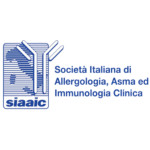
Don’t treat patients sensitized to allergens or aptens if there is not a clear correlation between exposure to that specific allergen/apten and symptoms suggestive of allergic reaction. This recommendation is particularly strong for allergen immunotherapy and elimination diets.
The finding of a positive allergometric test for an allergen whose exposure is not related to any typical allergic symptom is uniquely indicative of an immunological sensitization.Therefore, there is no indication to treat patients only sensitized to allergens or aptens whose exposure is not associated with typical allergic sympotms.
Suggesting any treatment (including immunotherapy or diets) in patients with the above mentioned characteristics can expose the patient to the risk of useless and potentially harmful treatments, as they are generally not bare of adverse events. Specifically for elimination diets, suggesting them in an unappropriate way may expose the patient to nutritional deficits without obtaining the resolution of symptoms/complaints for which the patient perfomed the allergometric test.
Sources
1. Boyce JA, Assa'ad A, Burks AW, et al. Guidelines for the diagnosis and management of food allergy in the United States: report of the NIAID-sponsored expert panel. J Allergy Clin Immunol. 2010 Dec; 126(6 Suppl): S1-58.
2. Sicherer SH, Wood RA; American Academy of Pediatrics Section On Allergy And Immunology. Allergy testing in childhood: using allergen-specific IgE tests. Pediatrics. 2012; 129(1): 193-7.
3. Passalacqua G, Compalati E, Canonica GW. Sublingual Immunotherapy: Clinical Indications in the WAO-SLIT Position Paper. World Allergy Organ J. 2010; 3(7): 216-9.
4. NICE Diagnosis and assessment of food allergy in children and young people in primary care and community settings, 2011. http://guidance.nice.org.uk/CG116/Guidance
5. Guidance on food allergy in children. Editorial. Lancet 2011; 377: 691.
Attention. Please note that these items are provided only for information and are not intended as a substitute for consultation with a clinician. Patients with any specific questions about the items on this list or their individual situation should consult their clinician.


Recent Comments